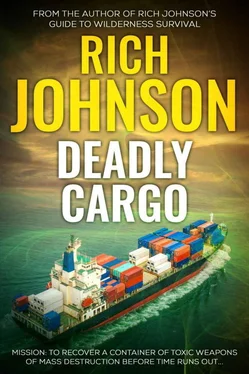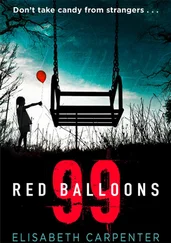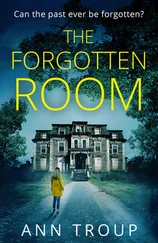It seemed to Sorgei that it was always winter in Yakutsk, and always night. He could not remember ever being at this military research outpost under any other conditions. Or maybe it just seemed that way to him. This past few months were so long and slow-moving. And at this high latitude, the winter nights were endless and the days… well, he didn’t know what happened to the days. Right now he remembered no days, only nights, only cold, only blizzards.
Against the merciless Siberian wind, he pulled the side of his hood close to his face and crossed the frozen pavement through ankle-deep snow that swirled around his feet. A single bulb beneath a rattling metal shield lighted the door that led into the other building. He wrapped his mittened hand around the knob, turned and pulled the door open. A flood of light made him squint, and his face felt welcome warmth. It was another world in here, with far more light and more heat than in the place they had given him as his office. I should have become an officer, he thought, instead of being a scientist .
He shook off the snow, removed his mittens and the parka and hung them on a hook against the wall. With no shoes to wear, he kept the mukluks on his feet. He was sure he would be back out in the cold and snow soon enough anyway, trudging to his frigid quarters, so he didn’t bother to bring his shoes.
Down the hall, a soldier with a rifle slung over his shoulder stood outside the office door where Sorgei needed to go. As he stepped in front of the soldier, the man came to attention and asked to see his ID. Sorgei pulled out the card from inside his shirt, where it hung around his neck on a piece of string. The soldier inspected the card, looked Sorgei up and down and then returned the card to him.
This is ridiculous , Sorgei thought. Who else would be up here in this frozen Siberian purgatory pretending to be me? The soldier moved aside; Sorgei turned the door handle and stepped into the warmth of the commandant’s office. His glasses immediately steamed up, temporarily blinding him behind a gray fog.
“Excuse me, sir,” Sorgei said as he removed his glasses and wiped them dry with a handkerchief. “It’s the warmth. Marvellous!”
Commandant Schmernov didn’t notice what Sorgei was doing, because he didn’t even look up at the man as he entered the office. “Take a seat,” the commandant barked. “This won’t take long.” He continued to write for another minute before setting his pen aside and raising his eyes to meet the scientist’s gaze. The great bulk of the base commander filled all the space behind the desk. His red face and veined bulb nose told of too many years under the influence of a vodka bottle.
How do men like this end up in command of anything? Sorgei wondered. They can’t even take control of their own lives . One thing he was thankful for was that the Groschenko family did not allow alcohol in their home. His father taught the children that vodka was poison for the brain, and Sorgei took that to heart. Not being an athlete for the state, he knew that if anything were going to move him up the ladder of success, it would have to be his brain, so he made sure he never poisoned it.
Sorgei took the seat, as commanded, and waited to find out why he had been summoned.
“I’ll get right to the point,” the commandant said. “You’re out of a job.”
The news took Sorgei’s breath away. “Wh– what?” was all he came up with.
“Moscow wants you out of here immediately. I will take all your papers. A car is waiting outside. You are dismissed.”
It took a moment for it to sink in. Sorgei felt suddenly weak all over, and a wave of nausea swept over him. As he spoke, his head was spinning. “What am I to do?”
“I don’t care what you do,” the commandant barked. “Just leave that satchel and get out of this office. I have work to do.”
Almost too weak to stand, Sorgei gripped the arms of the chair and lifted himself to his feet. The commandant motioned to the soldier through the glass pane in his office door, and the guard came and took Sorgei by the arm to escort him out. “I don’t understand,” Sorgei whimpered to the soldier, “I just don’t understand.”
“Get him out of here,” the commandant yelled. The guard hauled Sorgei down the hall to the door leading outside, took the parka and mittens off the hook and handed them to the scientist, then opened the exit door and pushed him out into the cold. Sorgei heard the door slam behind him, then heard a car engine start. Headlights came at him from the right, and the car stopped directly ahead. The rear door opened, and someone pulled him inside, then the car sped away into the night blizzard.
Inside the commandant’s office, the big man in charge pulled down the privacy shade to cover the glass panel in the door. He ripped open the satchel and dumped the contents onto the floor. “What a shame,” he muttered. “Months of work. Groschenko was supposed to be the most brilliant biologist for this kind of thing. I hope Moscow knows what they’re doing.” He picked up the first piece of paper, studied it long and hard, as if he hated to let it go, then he fed it into the shredder.
Twenty minutes later, the commandant picked up the phone, pressed a speed dial number and waited. When the line picked up, he said only three words, “It is done.”
Someone on the other end of the line spoke, and the commandant listened. “Da. I will do that.” He hung up the phone, emptied the shredder into a plastic trash bag, tied the top and carried the bundle out of his office. The soldier came to attention and saluted as the commandant left his office, turned left and walked down the hall toward the back of the building. He opened the door to the furnace room, and stepped back as the heat of the coal-fired boiler rushed at him. Then he stepped inside, opened the furnace door and tossed the bag into the flames.
Moments later, he placed another call and spoke the same three words as before.
* * *
Two days later, after a midnight flight from Yakutsk in an old DC3 propeller-driven airplane that had the appearance of being rescued from the scrap pile, Sorgei Groschenko found himself standing on the frozen streets of Moscow. He had no job and no place to go. There would be no fame, no fortune, no peer adulation, no heritage, and no monument in Red Square. Worst of all, there would be no vacation in the sun on the Black Sea. The Soviet Union was being dismantled in favour of a new Russia. The old Soviet military, along with its secret efforts to develop ever more deadly strains of germ warfare, was finished. Not only finished, but it was under orders and scrambling to destroy all evidence that it was ever working on biological weapons of mass destruction. All his research, all his effort – it was all gone, shredded, burned, destroyed to hide it from the probing inquiries of the United States and her allies in Europe.
For the first time in his life, Sorgei Groschenko and a vast number of other scientists were out of a job. He was on his own, and he didn’t have a clue how he was going to support himself. If it weren’t for the cursed United States, none of this would have happened, he reasoned. All his life, he knew that America was the enemy of his homeland, but now it was more personal. Now America was his own enemy. Her interference cost him his career, his future, and he hated the USA now more than ever.
* * *
For the next eight years, Sorgei Groschenko worked two part-time night jobs; one in the late evening sweeping out a grain warehouse, and one during the early morning hours restocking shelves at a store. He slept during the day in a room in an old, rundown hotel in a poor section of the city, paying by the week and hoping to afford the next rent payment. Most of the time, there was no heat for his dreary room.
Читать дальше












